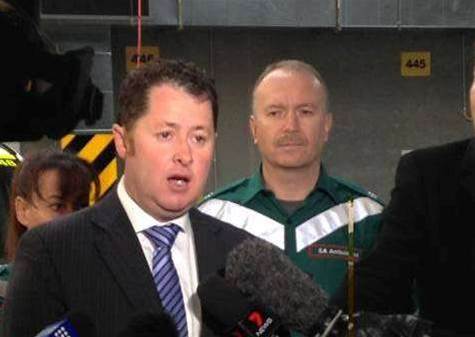South Australian Health Minister Jack Snelling has refused to commit to the continuation of the state’s $422 million electronic patient administration system (EPAS) rollout, which is currently on hold as the government works through funding and performance issues.

“We are having a look at it at the moment,” Snelling said, when challenged by opposition MP Duncan McFetridge to guarantee the rollout during an estimates hearing late last week.
“We have obviously put a pause on the rollout, which has partly been driven as a result of the federal cuts."
The SA Government paused a cluster of capital works programs within the health portfolio in response to a fall in revenue from the Commonwealth Budget.
But the halt on EPAS work has also come as the result of user headaches plaguing the implementation.
“It was sensible also, for the moment, to pause on EPAS while we have a bit of a rethink about it,” Snelling said.
The opposition raised anecdotal evidence of ambulance service dashboards displaying no data for months, and of doctors who have to click through up to 40 screens to admit a patient.
McFetridge claimed 300 medication errors in one hospital were made by the system in its first few weeks, with staff forced to return to paper until the system was able to operate safely.
“There is no arguing that we have had difficulties with the patient administration side, in particular with the billing module. They are things that are being rectified by Allscripts, which is the provider of the software,” Snelling said.
The health minister also wouldn't rule out returning to the federal Treasury for more funds to complete the near state-wide system build, if the state government decides to keep it alive.
He said the Health department has managed the project within its original funding envelope to date – notwithstanding a $14 million CPI adjustment – but said the cost of maintaining legacy systems could push it over the edge.
“We would have hoped that a number of those legacy systems by now would have been able to be turned off, but we have had to keep them going," Snelling said.
“The other issue we have encountered is that we have had to do significantly more training for our clinicians in the use of the program than was originally anticipated. It may well be that in the future we will have to get some supplementary funding.”
He did promise that he would not be rushed into short-changing the initiative, which he pointed out has already seen 3500 alerts for patient drug allergies distributed and a backlog of 1400 outpatient discharge letters cleared.
“Health IT rollouts can obviously cause deaths if they go wrong,” he said.
“It is incredibly important that we get this right and that no corners are cut. I will be rolling it out at a rate at which I deem and on which I have very strong independent assurance that it is absolutely safe to do so.”


_(20).jpg&h=140&w=231&c=1&s=0)

_(23).jpg&h=140&w=231&c=1&s=0)






 iTnews Benchmark Awards 2026
iTnews Benchmark Awards 2026
 iTnews Executive Retreat - Security Leaders Edition
iTnews Executive Retreat - Security Leaders Edition
 iTnews Cloud Covered Breakfast Summit
iTnews Cloud Covered Breakfast Summit
 The 2026 iAwards
The 2026 iAwards












_(1).jpg&h=140&w=231&c=1&s=0)



